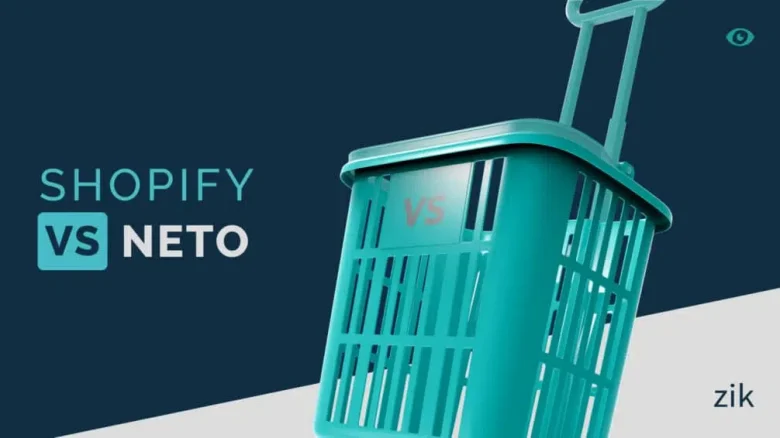Your choice of ecommerce platform for an online store can make or break your business.
It’s a tough decision to make, which is why it’s crucial that you research your options. Ideally, the right platform for an ecommerce store should provide the essential tools you need to serve your goals.
It’s easier said than done. With so many options and varying features and tools across different ecommerce platforms, you could be easily overwhelmed.
The Shopify platform is the most popular ecommerce platform because of its diverse Shopify themes that help you create your online store from scratch within minutes. Plus, the Shopify ecommerce and SEO tools enable ecommerce business owners to scale their businesses easily.
But a newcomer in town is giving Shopify a serious run for its money: Neto. What is the Neto site? How does Shopify vs Neto compare? Keeping an eye on how businesses advertise with AdSpy can also show which platform strategies actually resonate with customers.
Let’s look at these two platforms to help online store owners succeed in the online retail industry.
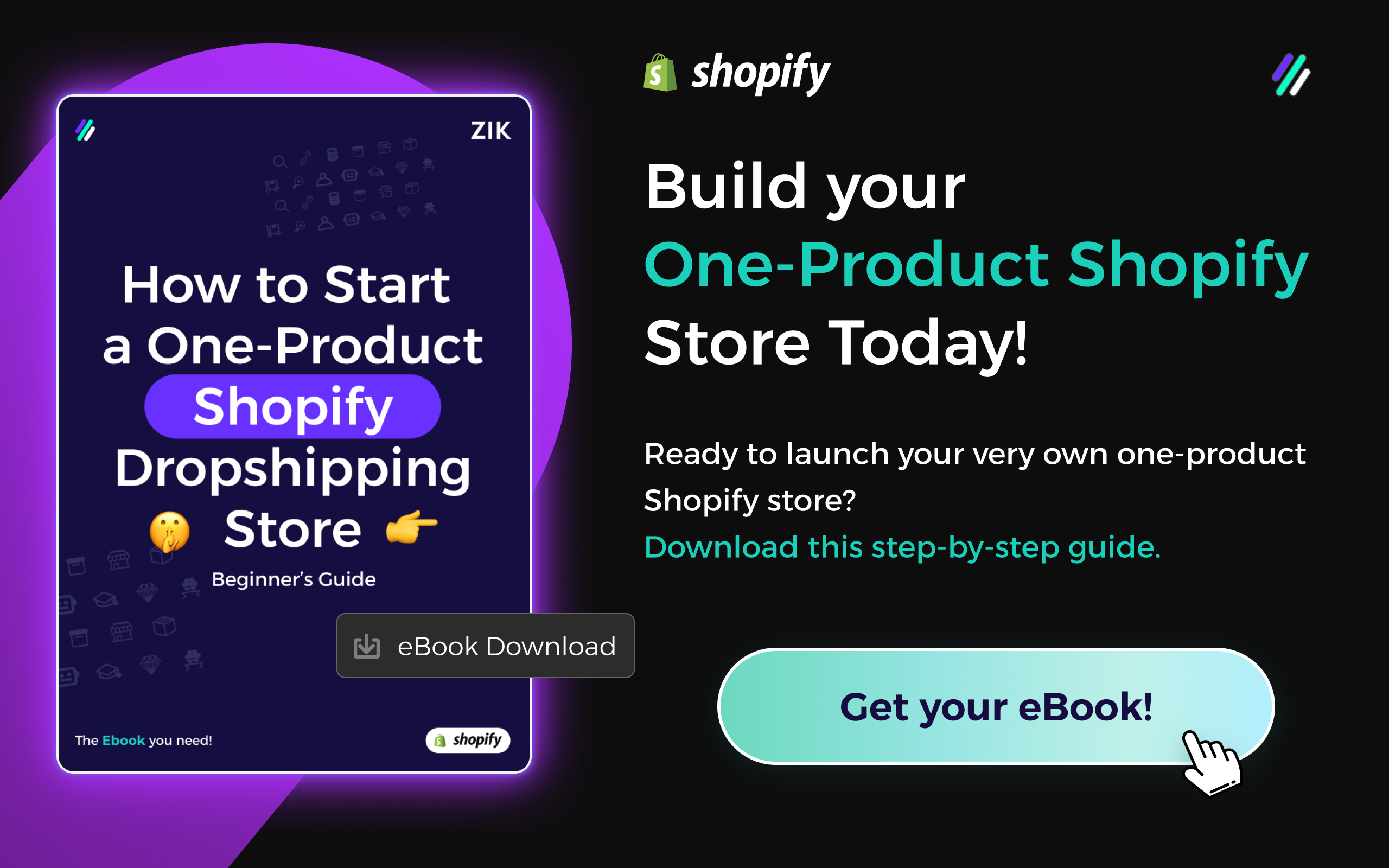
Introduction to Neto
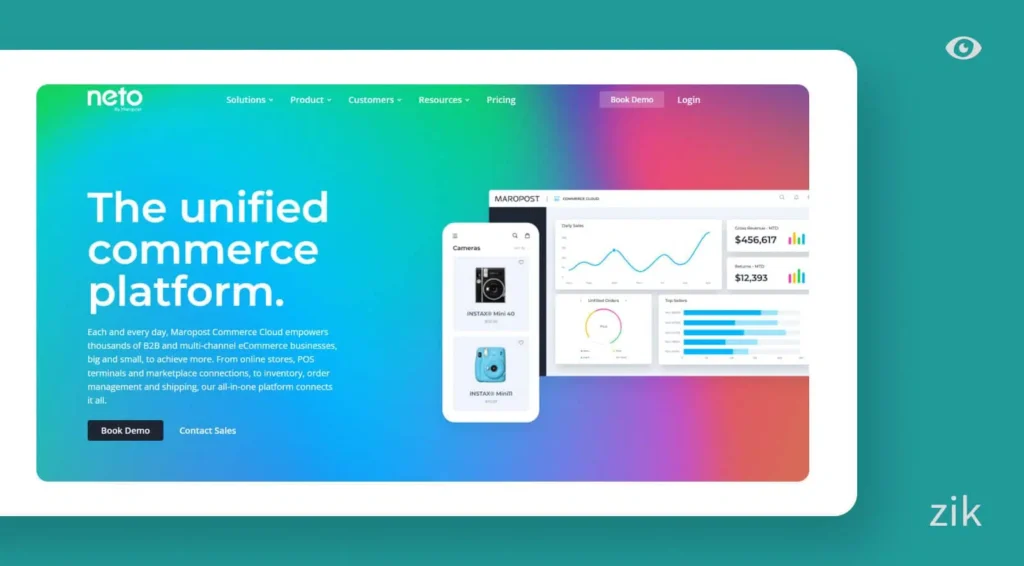
If you haven’t heard about the Neto site before, you’re not alone. It’s a relative newcomer as an ecommerce platform. It is a platform founded in Australia that offers its services to the Australian market and business owners.
Neto is emerging as a serious competitor for Shopify as one of the leading ecommerce platforms. Neto is a cloud-based, multi-channel ecommerce platform solution. Since its founding, it has produced over 2,400 live websites. Historically, it has helped produce over 5,000 websites.
According to its website, Neto is an all-in-one ecommerce platform that allows businesses like retailers and wholesalers to take on big online brands. It is made by Australians for Australians. It promises a complete suite of advanced features to improve ecommerce performance and multi-channel sales.
A Refresher on Shopify

Shopify needs no introduction, but for the sake of comparison, it’s important to review what Shopify is. Shopify has been the world’s most popular ecommerce platform since its launch in 2004. There are over a million stores that use Shopify as their ecommerce platform.
The reason for Shopify’s popularity is due to its beginner-friendly interface. Even without coding or website design experience, you can use build a Shopify page with their apps. Once you pick your Shopify plan, whether it’s the basic Shopify plan or Advanced Shopify, you have access to essential tools to set up your ecommerce store.
Shopify features a drag-and-drop website builder, so you can easily set up your Shopify store in an hour! You can also choose from the various Shopify themes to create an online store design. The Advanced Shopify plan gives you more features and functionalities to maximize the performance and marketing of your online store.
Shopify vs Neto: Overview
Which ecommerce platform is right for online store owners: Shopify vs Neto? The best way to choose the best platform for an ecommerce store and enjoy business growth is to look into the depending factors.
Here is an in-depth look at how to choose the right ecommerce platform for your online business.
Pricing & Plans
Regarding pricing, Shopify vs Neto each have their distinct pricing plans. Therefore, you can choose the best ecommerce platform to suit your budget and where you are in your online business journey.
Shopify offers five pricing plans that differ in the features and functionalities you can access when building your ecommerce store.
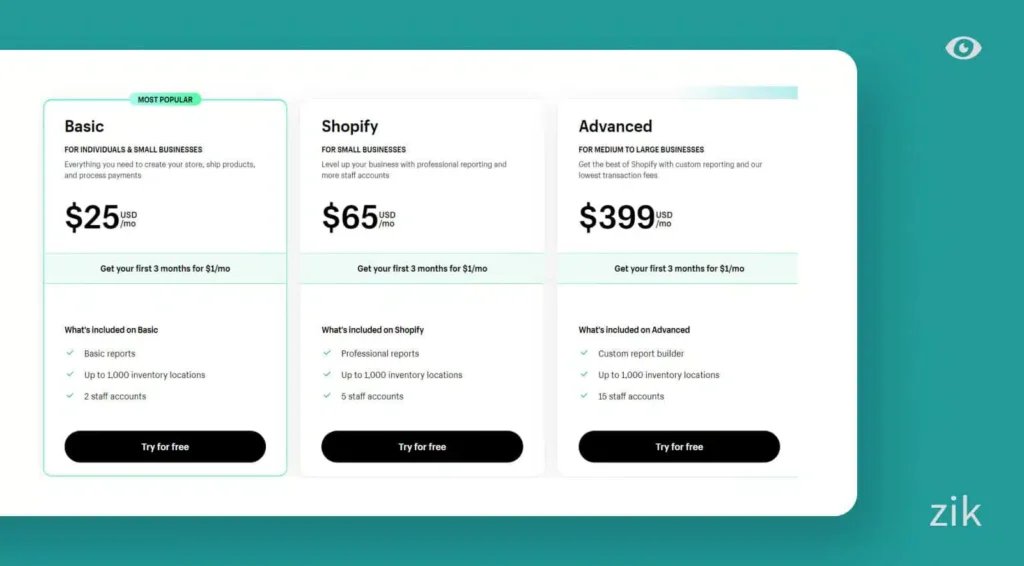
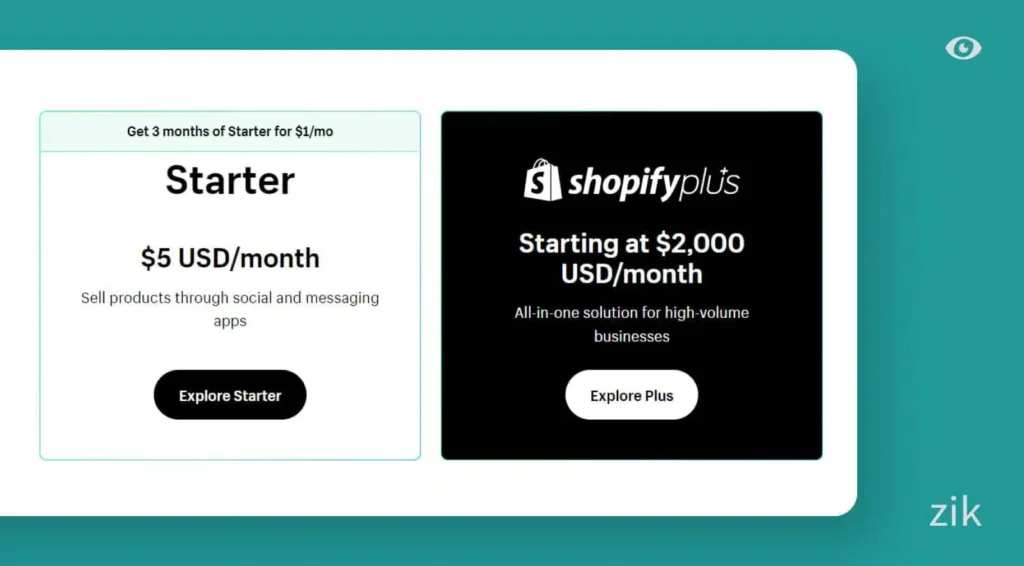
- Starter ($5 USD per month) – Set up a store in minutes and sell online through social and messaging apps.
- Basic Plan ($25 USD per month) – This plan is ideal for individuals and startups. Access all the features and functionalities to set up an online store and process payments for your orders. The basic plan also includes basic reporting and two staff accounts.
- Shopify ($65 USD per month) – This plan is ideal for small businesses. You can create up to nine staff accounts and professional reporting for your small business.
- Advanced ($399 USD per month) – This plan is ideal for medium to large businesses with up to 15 staff accounts. It offers a custom report builder and the lowest transaction fees.
- Shopify Plus ($2,000 USD per month) – This plan offers an all-in-one solution for high-volume sellers and businesses.
On the other hand, Neto offers four basic plans. Here is an overview of the Neto pricing plans:
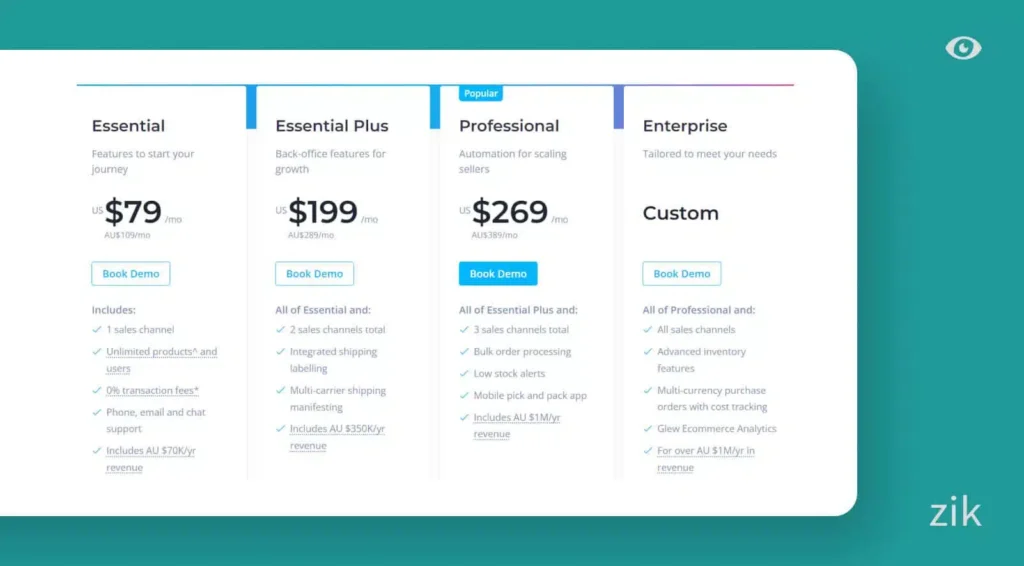
- Essential ($79 USD per month) – It includes all the features you need to start your journey in an online business and to set up a basic online store.
- Essential Plus ($199 USD per month) – Aside from the features available to the Essential plan, you can access back-office features to facilitate online business growth. You can set up a maximum of two sales channels.
- Professional ($269 USD per month) – This plan features automation to enable you to scale your business, such as low stock alerts and bulk order processing.
- Enterprise (custom price) – The Enterprise plan is tailored to meet the unique needs of every ecommerce store. You can enjoy the features and functionalities of an online store depending on the needs of your business. Notable features under this plan include ecommerce analytics, multiple sales channels, and multi-currency purchase orders.
Shopify offers a free version, and Neto does not. However, both platforms have a 14-day free trial. The signup process for both websites is easy and intuitive, which makes setting up your account a breeze.
Themes and Design
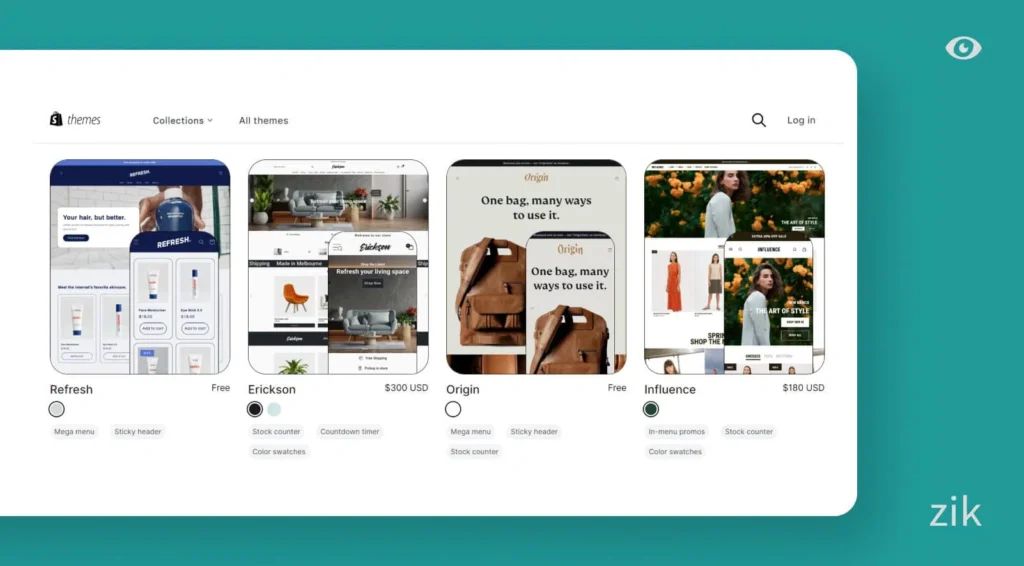
Access to various Shopify and Neto themes is crucial if you want to create an online store that visually stands out. Nowadays, it’s not enough that you have good quality products. You must have an online business that can showcase your products in an appealing way.
Having access to customizable themes enables you to choose the right theme to suit your industry and your branding. If you were to hire a professional website designer, it could take several weeks and a lot of money to accomplish. But when you use Shopify or Neto, you can create professional business websites in an hour!
There are over 120 Shopify themes available on the paid plans. You can also access free themes, giving you more options. Once you have chosen a theme, you can use the website editor to customize specific items in that layout. Therefore, you can upgrade your website to achieve the style and branding for your online business.
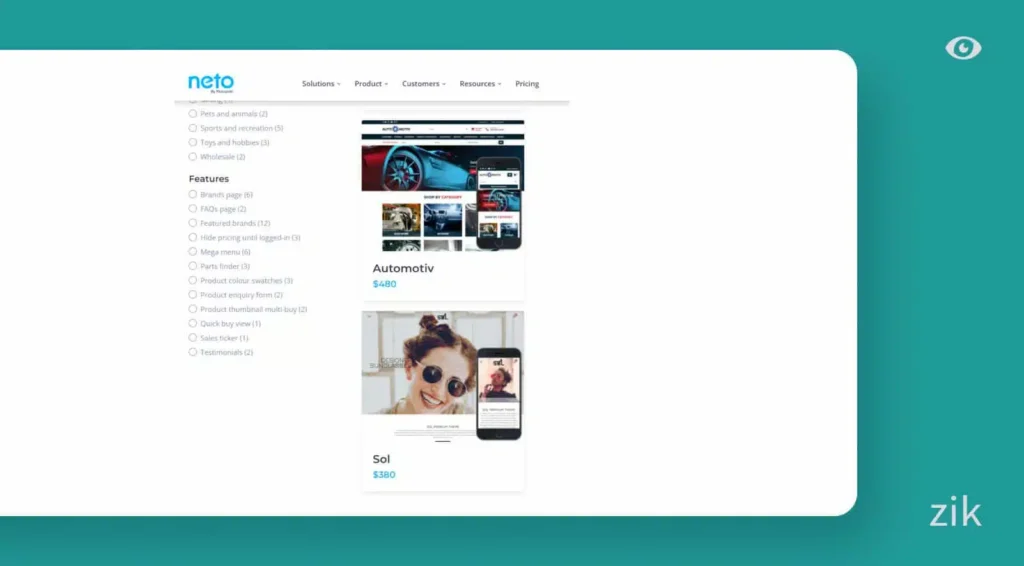
With Neto themes, you have fewer options than Shopify themes offer. There are over 40 Neto themes, and you can choose according to the category or industry for your online business. If you go for the paid themes, there will be an additional fee for them (the same goes for Shopify).
Therefore, knowing that you must pay more to enjoy customized themes for your online store is crucial.
On average, Neto’s themes are slightly more expensive than those available through Shopify.
Payment Gateway Options
The availability of payment gateways is a crucial factor to consider when deciding between Shopify and Neto. Working with more payment providers is important to ensure convenience for your customers when shopping from your store.
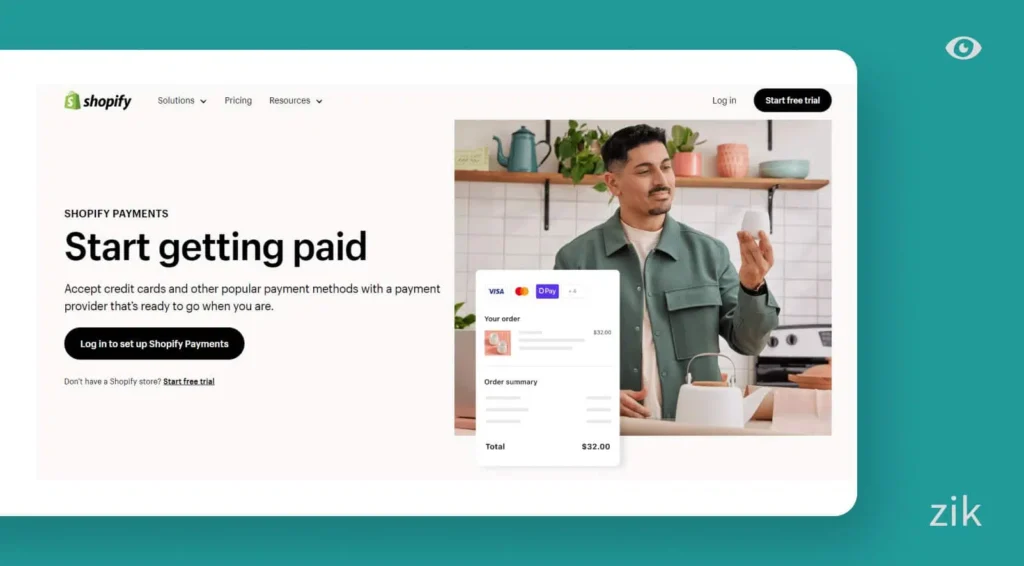
With Shopify, you have the ability to integrate over 100 payment gateway options, including major credit cards like Visa and American Express. You can also integrate Stripe and other payment processing solutions.
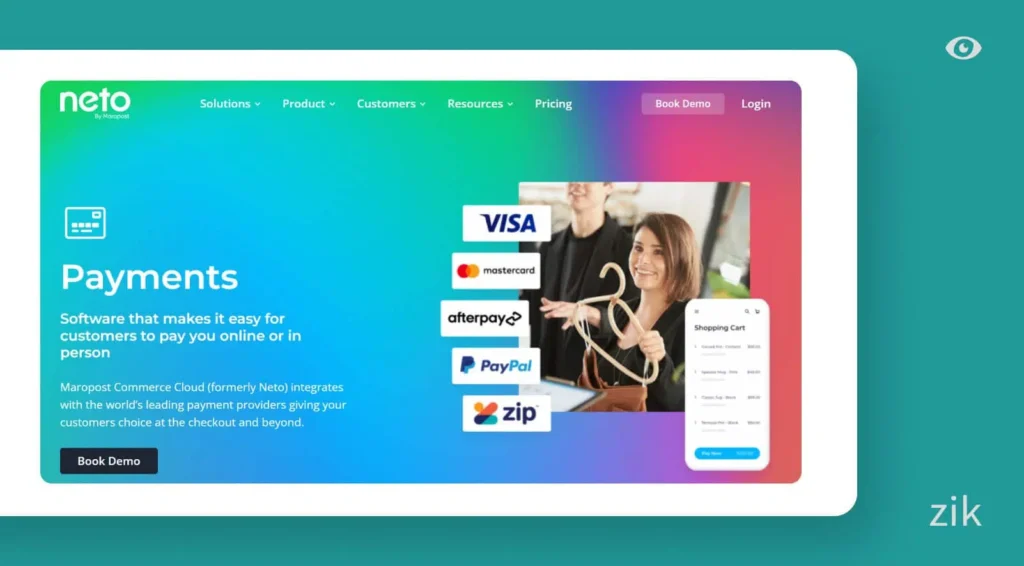
With Neto, they currently offer major payment gateways within the Australian market. You can expect that more payment gateways will be added soon since Neto is still a relative newcomer to the industry.
So, for now, Shopify wins this department.
Shipping Options
As you would expect, Neto offers Australian shipping. Neto is partnered with AusPost to provide shipping options for retailers and online businesses. The Australian shipping services available with Neto websites include eParcel, among other major Australian couriers.
The shipping features on Neto enable businesses to streamline order fulfillment and processing. Many steps are automated, such as the quoting and labeling, especially since they are tied to a multi-carrier shipping system. This shipping method facilitates faster and more efficient shipping.
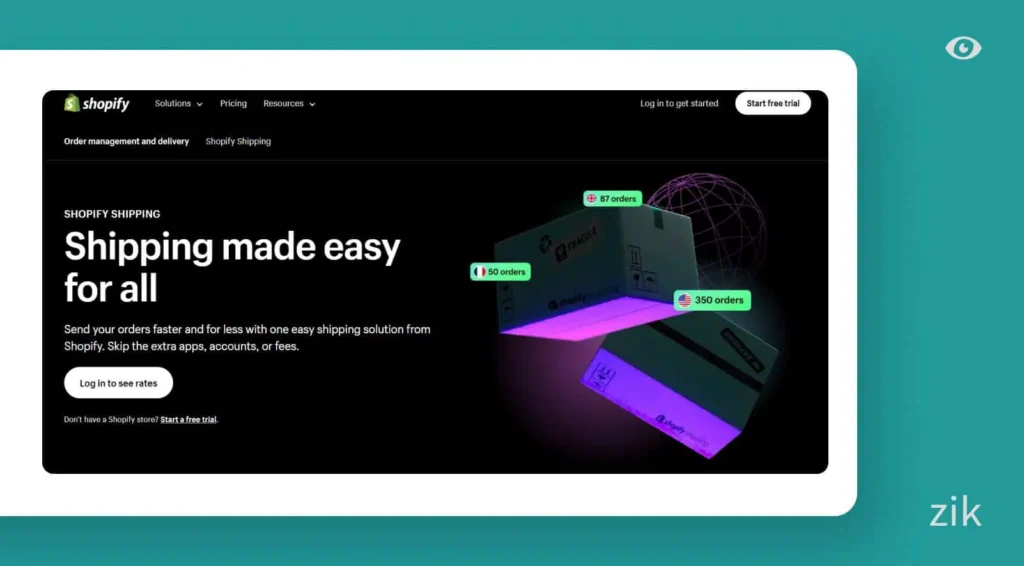
Meanwhile, Shopify also offers impressive shipping features. Online businesses that utilize Shopify as their platform can access international shipping providers and those that offer Australian shipping.
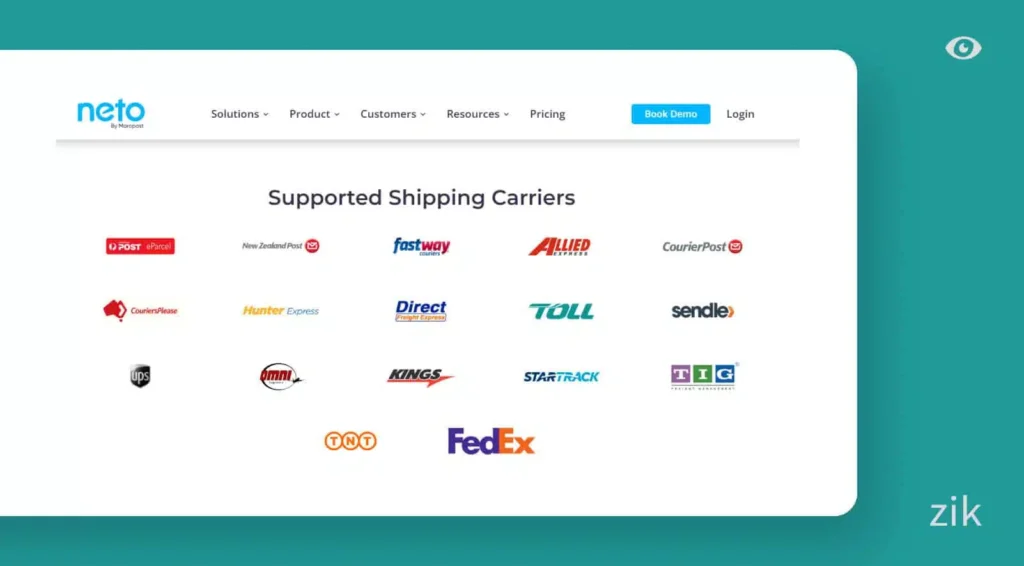
Neto wins the shipping department due to the complexity and the wide availability of shipping features. But a Shopify store will still get the job done if your shipping needs are basic.
Support
The best ecommerce platform should provide prompt and comprehensive support if you experience trouble setting up or using your ecommerce store.

Shopify offers an 24/7 excellent customer service support team. You can access many helpful resources on the website. In addition, the support team includes a live chat function and email support. Therefore, you can easily reach Shopify support if you need help using your Shopify store.
Neto’s support team is locally managed, with most of the customer support team based in Brisbane. However, some customers complain about the slow response from Neto’s customer support team. You can always refer to the help articles or email the support team if you have any issues.
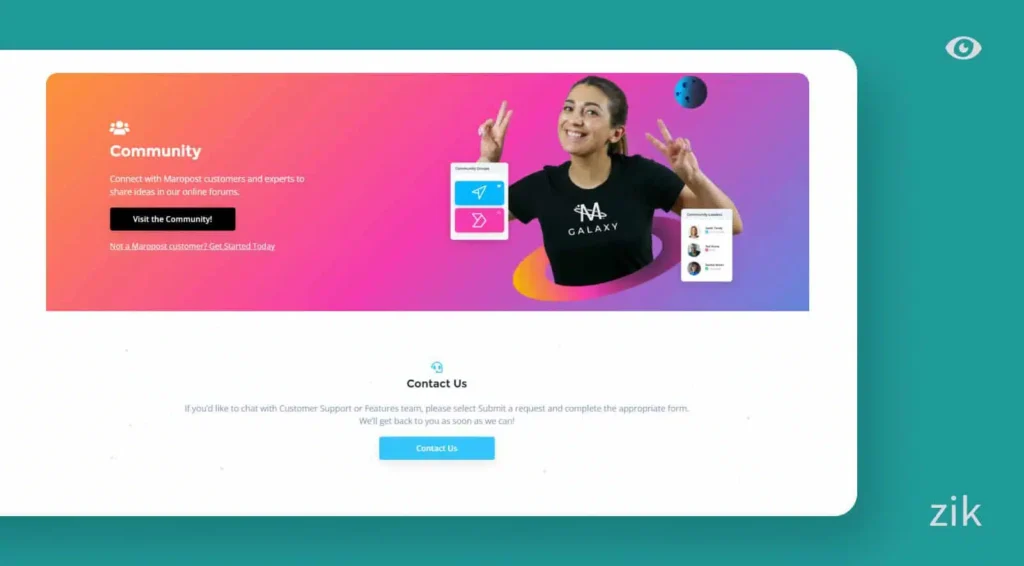
Since customer management is crucial in finding the best platform for your growing business, Shopify wins in the support department.
Online Store Functionalities
The customer end in using the online store is comparable between Shopify and Neto. Neto and Shopify enable business owners to set up functional and easy-to-navigate stores. But that’s speaking from the front end. There might be a difference between these two platforms from the back end.
Shopify’s online store functionalities are easy to use, even if you’re a beginner. You can easily upload your products to your store, and the processing of orders is just as easy. Shopify wins, from managing orders from multiple warehouses to stock management and app integration.
With Neto, it’s not really as easy or as smooth sailing. Maximizing the online store functionalities can be confusing, especially from a beginner’s standpoint. While Neto offers many automated capabilities, it’s still inferior when you do Shopify comparison.
Download this eBook to jump start your dream Shopify business today!Ease of Use
If you’re a beginner in building your own ecommerce store, it is important to choose an ecommerce platform that is easy and intuitive to use. A user-friendly interface makes it easy to navigate the features on the platform, saving you time and effort.
Shopify reigns supreme in this one as an e commerce platform that stands out for its simple and straightforward layout. In addition, the website builder and editor is easy to use. Even if you do encounter issues with using the website, they have 24/7 support that is available to respond to your queries or help in setting up your online store.
On the other hand, Neto is slightly inferior to Shopify in this regard. Neto’s homepage is still very clear and simple. But it lacks the ease of navigation that Shopify is, which is why it gets the edge in ease of use.
Marketing
SEO and marketing are integral for a growing business, especially in the ecommerce industry. Therefore, it’s not enough that you can find an affordable ecommerce platform or one that is popular. Make sure to consider the marketing and SEO tools the said ecommerce platform offers.
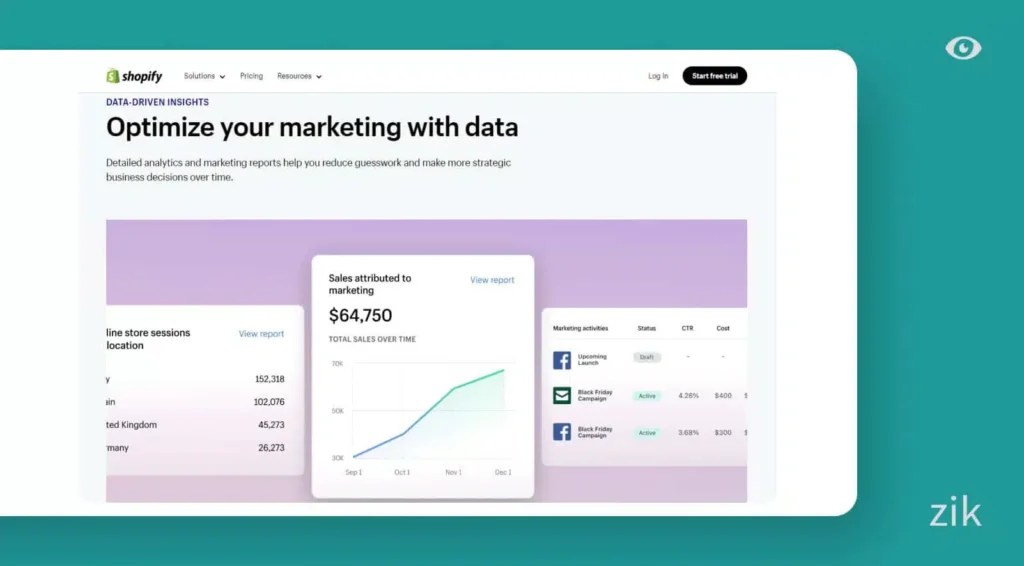
Shopify has a robust marketing and SEO suite of features to optimize your website performance. One example is the introduction of the email marketing tool called Shopify Email. In addition, Shopify’s multi-channel integration also makes it easier for online store owners to cross-promote their products on other platforms, such as social media.
You can also help with other people with like influencers for marketing Shopify products.
Regarding SEO, Shopify offers various SEO plugins like Plugin SEO and SEO Meta Manager. Take advantage of these tools to optimize the SEO elements of your website.
Neto also offers a comprehensive range of marketing tools for Australian business owners to promote their products online. Among Neto’s third-party integrations are Mailchimp, Review.io, and Instagram Gallery. Business owners can use them to boost store visibility and attract potential buyers for their business.
Aside from taking full advantage of each platform’s marketing tools and SEO capabilities, online store owners must arm themselves with a reliable product research tool. These tools enable you to identify the trending products that customers want to buy!
In addition, you can utilize these tools to perform keyword research to target the terms that customers want. You can also utilize those keywords to optimize your titles and product descriptions on the listing, giving your products more visibility on these platforms.
Final Thoughts: Shopify vs Neto
Now that you know about each platform, which is the winner: Shopify vs Neto?
Neto is a newcomer in the ecommerce industry, and it’s already making a name for itself. However, Shopify remains the superior ecommerce platform in this Neto and Shopify comparison.
However, since every business’s needs are unique, you can choose the best platform that offers the necessary services and tools. This guide (hopefully) has provided you with the information you need to make the right choice.
Launch Your Store with Shopify AI Store Builder
Decided Shopify is right for you after comparing Shopify vs Neto? Don’t waste time building from scratch; let the Shopify AI store builder help. It automatically generates a personalized, optimized store layout with products, categories, and pages tailored to your niche. Perfect for busy entrepreneurs ready to launch fast and scale with confidence.
Frequently Asked Questions: Shopify vs Neto
Here are some frequently asked questions on Shopify vs Neto:
Who is Shopify’s biggest competitor?
Shopify’s biggest competitors are BigCommerce, WooCommerce, and Adobe Commerce (formerly Magento)—they each offer strong features for selling online, especially for businesses with different priorities.
How much does Shopify take from a $100 sale?
On Shopify’s Basic plan with Shopify Payments, a $100 sale is charged 2.9% + $0.30, so you pay $3.20 in fees and receive $96.80. Higher-tier plans reduce the percentage, while using third-party gateways adds extra charges beyond Shopify’s standard payment processing fees.
What is the biggest problem with Shopify?
The biggest problem with Shopify is cost; monthly subscription fees combined with transaction charges and reliance on third-party apps can quickly add up. Many essential features often require paid add-ons, making long-term scaling expensive compared to open-source alternatives, where customization and ownership can be more affordable.
Who are Neto competitors?
Here are some competitors of Neto (now part of Maropost Commerce Cloud) as alternatives for ecommerce, POS, and commerce-management platforms: WooCommerce, Shopify, PrestaShop, BigCommerce, and WebCommander
Is there better than Shopify?
Yes — for many people, some platforms work “better than Shopify,” depending on what you prioritize. Here are some alternatives: BigCommerce gives more built-in features (especially for scaling and B2B) without relying as much on third-party apps. WooCommerce (WordPress) gives you more control and flexibility (though more technical work). Wix or Squarespace can be cheaper and easier if you don’t need advanced ecommerce features
What is the cheapest ecommerce platform?
The cheapest ecommerce platform often cited is WooCommerce because the core plugin is free and you only need to pay for hosting, a domain, and any paid extensions/customizations. Big Cartel (free tier for up to 5 products) and Shopify’s Starter plan are also among the lowest cost options.
How does Neto compare to Shopify?
Neto excels for Australian merchants with strong native features like advanced inventory/order management, local shipping options, built-in B2B/wholesale tools, and fewer add-ons needed; Shopify wins in global reach, ease of use, app ecosystem, payment-gateway variety, theme polish, scalability, and 24/7 support.
How much does Neto cost?
A Neto (Maropost Commerce Cloud) plan starts around AU$199/month for the Essential tier, which includes 1 sales channel, unlimited products/users, and support. The Professional plan is about AU$789/month with more channels, bulk processing, and more revenue-capacity
Is Neto a good eCommerce platform?
Yes, Neto (Maropost Commerce Cloud) is a good ecommerce platform — especially for businesses in Australia, B2B/B2C, or those needing strong inventory and multichannel management. It offers built-in POS, marketplace integrations, and wholesale features without transaction fees. However, it has a steeper learning curve, fewer apps/themes, and higher costs for smaller stores.
Want to review our other Shopify comparison articles?
Check out our comparisons of Shopify vs:
- Big Cartel
- BigCommerce
- Ecwid
- Magento
- Neto
- OpenCart
- osCommerce
- PrestaShop
- shopify plus
- Squarespace
- Volusion
- Weebly
- Wix
- WooCommerce
- WordPress












